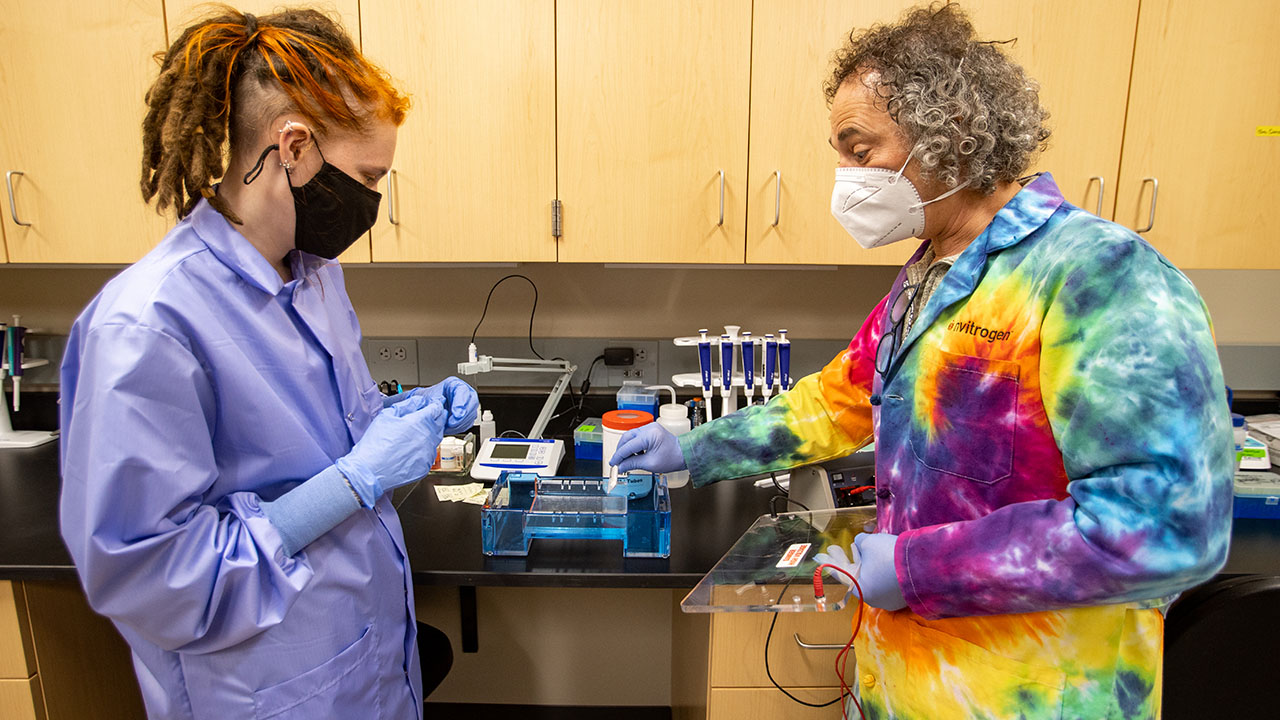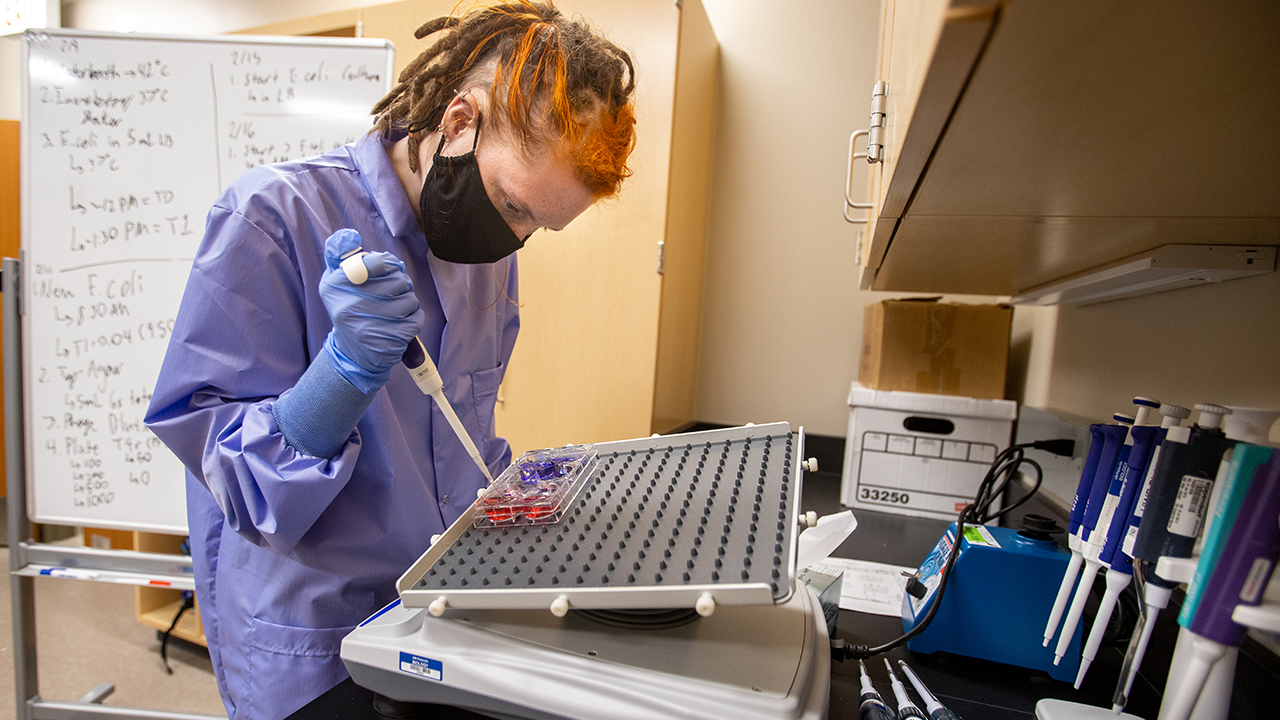

Dr. Mark Levenstein, assistant professor of biology at the University of Wisconsin-Platteville, is the recipient of the Regent Scholar Award for his proposal titled, “Aryl Fluorinated Ethers to Develop the Next Generation of Agrochemicals.” Through the recognition, Levenstein received a $50,000 grant from UW System to pursue his research.
“I’m humbled to receive the award,” said Levenstein. “It’s a new project. I’m excited to explore something new with students. I’m hoping we have some interesting results.”
Levenstein is collaborating with Dr. Ian MacKenzie, assistant professor of chemistry. According to Levenstein, their project is based on technology MacKenzie has developed to be able to add fluorine atoms in certain spots in existing molecules. Levenstein said there is evidence when that happens molecules can gain enhanced activities, allowing them to last longer.
“The idea is that if you have an existing chemical that is already working and you can enhance its ability to work longer or harder, then you can, in turn, respond by using less chemicals or fewer applications and still get the same result,” he explained. “That’s great for the end user. It’s great for the environment in having to use less materials. We are hoping it’s great for the local economy, if we can perhaps develop something into popular use in the agriculture sector.”
Through the funding, Levenstein will offer six students the opportunity to work full time over the course of two summers to assist him with the research. Levenstein emphasized the importance of not only giving students the hands-on experience of conducting undergraduate research, but the benefit of working alongside colleagues in different disciplines.
“As a biologist, I’m interested in how organisms, or biological molecules, might be affected by some particular input. As a chemist, Dr. MacKenzie is interested in how he can manipulate and adjust molecules,” said Levenstein. “I don’t have the skill to do what he does, and he doesn’t have the expertise on our side. Together, we are hoping to synergize one another’s ideas. In the process, excite and offer students an opportunity to see how it all works.”
“My goal is to inspire as many students as possible to take this opportunity and use it to advance their careers and professional goals beyond this institution. My hope is that in the process of doing that, we can impact things beyond just our space here at the university.” –Dr. Mark Levenstein
Levenstein, who began his research in January, is looking forward to seeing what the project generates in the next year-and-a-half. He states, the overall research brings many implications in both biological discoveries and chemical exploration. Levenstein also wants to encourage students who are interested in undergraduate research to reach out to faculty members and ask how they can get involved.
“My goal is to inspire as many students as possible to take this opportunity and use it to advance their careers and professional goals beyond this institution,” he said. “My hope is that in the process of doing that, we can impact things beyond just our space here at the university.”